-
Posts
12458 -
Joined
-
Last visited
-
Days Won
555
Content Type
Profiles
Forums
Events
Everything posted by Fiery
-
I'm sorry for the late reply. We do have special support in AIDA64 for previous generation 3ware SATA RAID controllers, but no support yet for your RAID controller. In case you receive annoying event log entries due to the RAID controller polling layer of AIDA64, then please try to disable RAID SMART support in AIDA64 / main menu / File / Preferences / Stability. We'll need a bit more time to investigate this issue, since we currently only have older 3ware controllers in our test labs. So first we have to get one of the newer ones to try and reproduce the issues you're having. Regards, Fiery
-
Please remove the Time (Zeit) item, and add a new one using the Simple Sensor Item item type. I guess the current Time item uses the more complicated Sensor Item type, and it requires a bit of tweaking to get a proper placement for such items like Date and Time. Regards, Fiery
-

Problem with the Amd Phenom II X4 965 CPU (Asus M4A785TD-V Evo)
Fiery replied to DomDom77's topic in Bug reports
The sensor readings will be fixed in the very next beta release of AIDA64 due next week. It will clear up the temperature labelling issue I'll post a message into this topic once the new beta is available. -
Crucial M4 SSD drives do not implement a working thermal sensor logic. Most SSDs suffer from the same issue, since somehow SSD manufacturers don't think it's important to implement a temperature sensor. Some SSDs may have a temperature reading among the SMART attributes, but it either reports a constant zero Celsius, 1 Celsius, or a stuck value of e.g. 30 or 40 Celsius. Regards, Fiery
-

Problem with the Amd Phenom II X4 965 CPU (Asus M4A785TD-V Evo)
Fiery replied to DomDom77's topic in Bug reports
Zero core temperatures are normal on systems where ACC is enabled. ACC is usually enabled to unlock the disabled cores of AMD processors. Due to a hardware limitation, core temperatures cannot be measures when ACC is active. As for the "CPU" temperature, we'll need two dumps to check what's wrong with that: 1) Please right-click on the bottom status bar of AIDA64 main window --> Sensor Debug --> ISA Sensor Dump. Copy-paste the full results into this topic. 2) Then right-click on the bottom status bar of AIDA64 main window --> Sensor Debug --> SMBus Dump (Full). Copy-paste the full results into this topic. Thanks, Fiery -
We've further tweaked the Preferences window restoring in the following new AIDA64 beta release: http://www.aida64.com/downloads/aida64extremebuild1618o2v4jwkrfzzip After upgrading to this new version, make sure to restart Windows to finalize the upgrade. Let me know if it helps. Thanks, Fiery
-
Removing the whole path under HKEY_CURRENT_USER\Software\FinalWire\AIDA64 should help to eliminate weird Preferences window placement issues. Of course it's possible to just reset the Preferences window values in the Registry by removing the following entries from HKEY_CURRENT_USER\Software\FinalWire\AIDA64: PrefWindowPosX PrefWindowPosY PrefWindowSizeX PrefWindowSizeY PrefWindowState
-
Have you tried to upgrade to the latest beta release? http://www.aida64.com/downloads/aida64extremebuild1611kb6wjk2msdzip When you removed the Registry entries, did you remove the complete path of HKEY_CURRENT_USER\Software\FinalWire\AIDA64 ?
-
Thank you for your support
-
Have you checked that AIDA64 auto-launch is still disabled in Logitech LCD Manager? Alternatively, you can have the option in AIDA64 ("Load AIDA64 at Windows startup") disabled, and let Logitech LCD Manager to launch AIDA64 at Windows bootup.
-
That's a normal to have the user associated to both those groups.
-

Asus P8Z68-V + i5 2500K BCLK=100 Aida64=110
Fiery replied to ivan.654's topic in Hardware monitoring
That solved the APIC clock measurement. It should solve the clock and multiplier issues too -
On Windowx XP and Windows 7 systems we can see only a single entry. Do you use Windows 7 or Windows Server 2008 or Windows Server 2008 R2? Your computer is not logged into a domain, is it?
-

Asus P8Z68-V + i5 2500K BCLK=100 Aida64=110
Fiery replied to ivan.654's topic in Hardware monitoring
The problem is due to AIDA64 not being able to measure APIC clock because you use an ACPI table virtualization patch. Such patches are used by Windows activator utilities to emulate a SLIC table. You need to have a legal Windows 7 copy to get APIC clocks back. -
AIDA64 Business Edition supports CSV, XML and SQL database reporting. AIDA64 Extreme Edition only supports TXT, HTML and MHTML report formats. Regards, Fiery
-
Apparently since Windows Vista such feature is no longer available in the Task Scheduler API. So we'll remove the double-click hint in the next AIDA64 beta release. It's normal. We chose not to display system tasks, because it would make the list of scheduled task very long, and would make finding non-system tasks rather difficult.
-
We've checked AnyDVD and CloneDVD, and they protect product keys with encryption. We'll check the rest soon.
-
1) Nero and Photoshop is already supported. But modern software products may encrypt their license keys, effectively preventing AIDA64 to collect them. 2) We'll check the rest of the requested software 3) Audio codecs are enumerated via acmDriverEnum Windows API call. Video codecs are enumerated via ICInfo Windows API call. I guess K-Lite fails to register the installed codecs properly, and so those API calls do not see the installed codecs. Regards, Fiery
-
Are you sure you have any opened files? Please note that in that case "opened" means the file is accessed from across the local network.
-

Computer shuts down when under heavy load (Acer Aspire 8930)
Fiery replied to Spiiral's topic in Hardware monitoring
Yes, it's normal. Your video adapter lowers its clocks when you're not running a 3D application (like a 3D game). You can use AIDA64 System Stability Test to stress your system and check if it is overheating under heavy load. Go to AIDA64 / main menu / Tools / System Stability Test, enable only the "FPU" test, and press the Start button. Watch whether the lower graph (Throttling) shows any non-zero percent activity. -
Thank you for the feedback. Regards, Fiery
-
We've fixed that in the latest beta version of AIDA64 Extreme Edition available at: http://www.aida64.com/downloads/aida64extremebuild1611kb6wjk2msdzip After upgrading to this new version, make sure to restart Windows to finalize the upgrade. Let me know how it works. Thanks, Fiery
-
We've fixed that in the latest beta version of AIDA64 Extreme Edition available at: http://www.aida64.com/downloads/aida64extremebuild1611kb6wjk2msdzip After upgrading to this new version, make sure to restart Windows to finalize the upgrade. Let me know how it works. Thanks, Fiery
-
Please upgrade to the latest beta version of AIDA64 Extreme Edition available at: http://www.aida64.com/downloads/aida64extremebuild1611kb6wjk2msdzip After upgrading to this new version, make sure to restart Windows to finalize the upgrade. Let me know if it helps. Thanks, Fiery
-
You're right, listing scheduled tasks may not work in some cases under Windows Vista and Windows 7. We'll fix that. I'll drop a message into this topic once a fixed AIDA64 build becomes available. Thanks, Fiery


